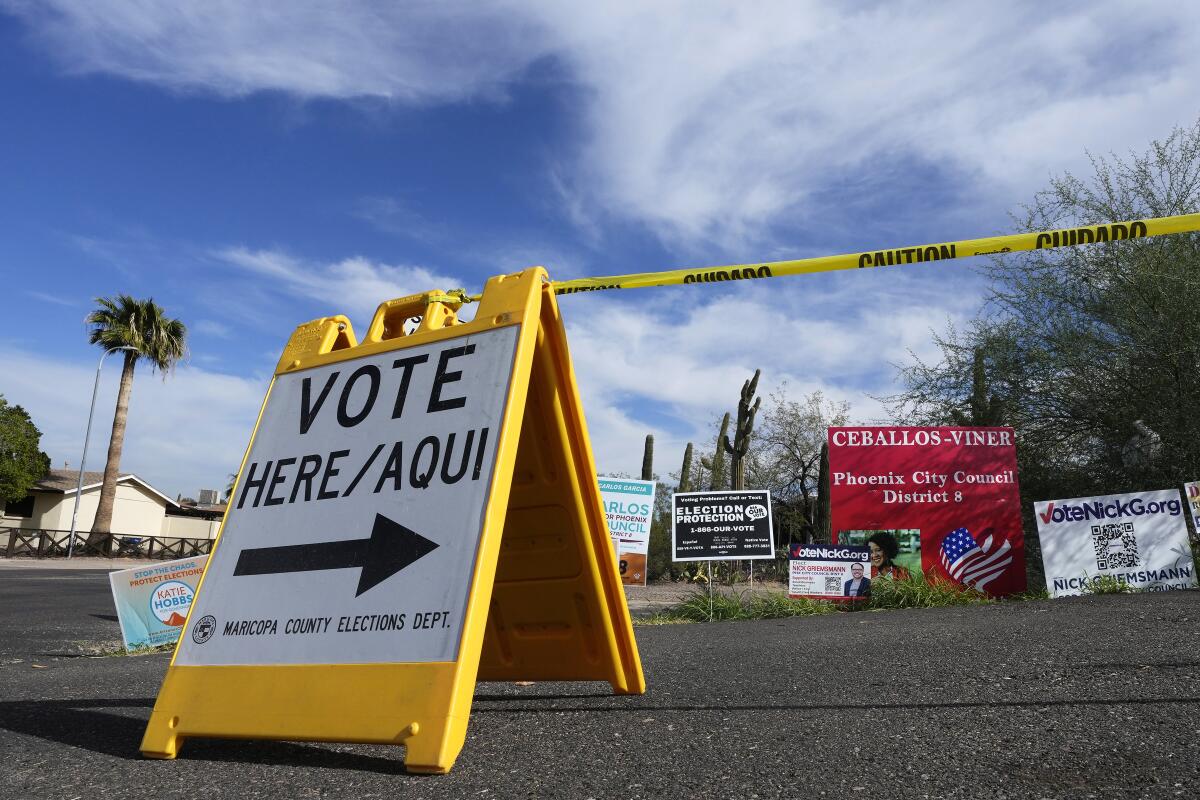Arizona voters reject effort to enact a stricter voter ID law

PHOENIX — Arizona voters, the overwhelming majority of whom cast their ballots by mail, have rejected a measure that would have required them to add more information than the simple signature and date they now put on the back of the return envelope.
Proposition 309 also would have eliminated the ability of registered voters without a state or federally issued photo ID with them when voting in person to provide other proof of identity to cast a ballot.
New tallies from Maricopa County and several smaller counties released Wednesday showed there was no chance for the measure to pass. It had been too close to call in the eight days since polls closed Nov. 8 and was the last of 10 measures on the Arizona ballot to be called by the Associated Press.
The measure was falling about 20,000 votes short of passing, well above the margin that would trigger a recount.
People wearing body armor or weapons have been observed at ballot drop boxes in multiple states after Trump and his allies urged supporters to monitor them.
Democrats and voting rights groups said that the changes would lead to more mail-in ballots being rejected and people being turned away at the polls. They also pointed out that citizenship and other requirements for voting are already confirmed during the voter-registration process.
Republicans said the changes were needed to boost election security. The GOP-dominated Legislature put the measure on the ballot.
If it had passed, Proposition 309 would have required voters to write their birth dates and add state-issued voter identification numbers, driver license or identification card numbers or a partial Social Security number to affidavits rather than just signing and dating them. The back-of-envelope signature used by many counties also would be changed to require that they be placed into a second envelope.
In-person voting requirements also would change, eliminating the ability of voters who don’t have a state, tribal or federal government-issued photo ID on them to vote by presenting two alternate documents, such as a utility bill.
More to Read
Get the L.A. Times Politics newsletter
Deeply reported insights into legislation, politics and policy from Sacramento, Washington and beyond. In your inbox three times per week.
You may occasionally receive promotional content from the Los Angeles Times.











